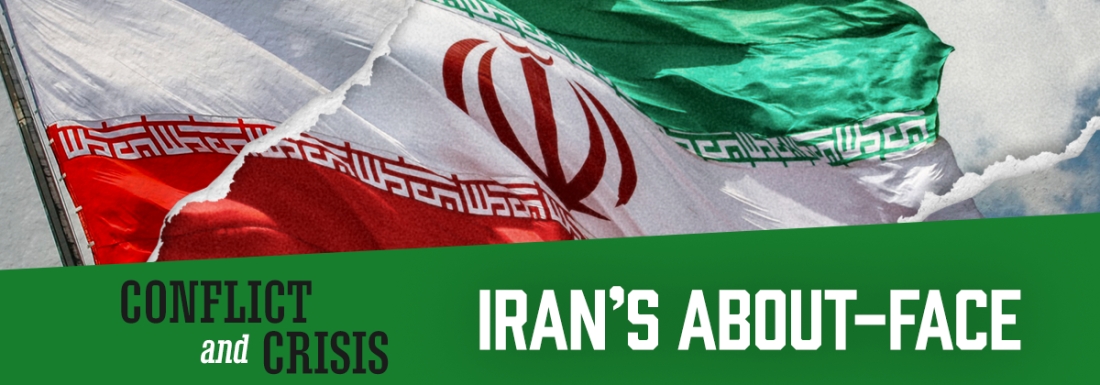Iran once stood, with Saudi Arabia, as one of two key pillars in protecting America’s interests in the Middle East. That changed with the 1979 Islamic Revolution, and the U.S. is grappling today with a steady escalation in Iranian aggression and tensions – among other things, over Tehran’s shipments of weapons to Russia for use in Ukraine.
Iran is now considered one of the largest state sponsors of terrorism in opposition to United States’ objectives in the Middle East and across the globe.
In the latest installment of the Library’s Conflict and Crisis series in partnership with the U.S. Army Command and General Staff College, military historian and Middle East authority Brian Steed guides a discussion of that decades-long shift in dynamics and where our country’s fraught relations with Iran might be heading.
Joining him on the panel are Gates Brown, also an associate professor in the Command and General Staff College’s Department of Military history, and retired U.S. Air Force Col. Frank Klimas.
- Steed is an associate professor of military history at the Command and General Staff College, where he has taught since 2013. He served in the Army as an armor officer and Middle East foreign area officer, living and working there for 8½ years. He retired from active duty as a lieutenant colonel and holds a Ph.D. from the University of Missouri-Kansas City in political science and history.
- Brown, who was named the Command and General Staff College’s civilian educator of the year in 2021, is a former Army captain who served in Iraq (and was injured in combat) during Operation Iraqi Freedom. He holds a master’s degree and doctorate in military history from the University of Kansas.
- Klimas just retired as commander of the Air Force’s 505th Command and Control Wing, Detachment 1, at Fort Leavenworth. In that capacity, he served in part as the principal airpower advisor to the Training and Doctrine Command of the U.S. Army’s Combined Arms Center. Klimas also was a foreign area officer for the Middle East and North Africa, and he serves on the board of Kansas City’s International Relations Council.
